EU Is Temporarily Closed Until Solidarity Returns
Adelina Marini, January 7, 2016
Passing the hot refugee potato had to finish at some point. Destination countries finally said basta and lowered the barriers after sending a clear message to transit countries – while there is no solidarity, there is no freedom of movement. In other words without solidarity there is no EU. This became clear at the meeting of Commissioner on Migration Dimitris Avramopoulos in Brussels with representatives of Denmark, Sweden, and Germany in connection with the chain reaction of reinstating border controls between them. Denmark is the last of three Scandinavian countries to reinstate border controls after Norway and Sweden. This happened on January 4th and the limitation will be in force until January 14th. It is observed along the sea and land border with Germany.
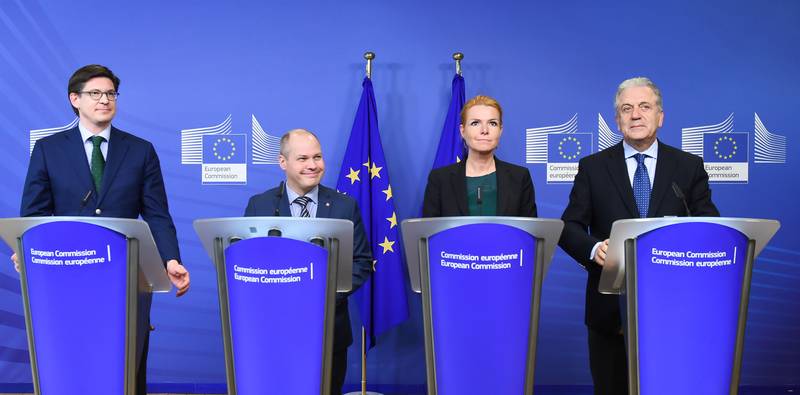
Sweden reinstated control on November 12th. It will be valid until January 9th. Norway, which is not a EU member, but is a part of the Treaty of Schengen also installed restrictions on November 12th, valid until January 9th. All three because of the unprecedented migrant flow. According to the preliminary appraisal of the European Commission, Denmark’s decision of January 4th is in line with the Schengen code, which allows member states to temporarily close their borders at the presence of a serious threat “to public policy or internal security”. It does not become clear from Denmark’s decision exactly which one they are talking about and the EC says they are still thoroughly reviewing the decision. After numerous questions from journalists in Brussels exactly what threat imposes the need for the next in line shutdown of EU and Schengen borders Commissioner Avramopoulos decided to call the meeting in the EC building for January 6th.
It revealed that apart from border restrictions there are also journalist restrictions levied because of... time restrictions. At first it was announced that after the Commissioner’s meeting with the ministers of migration of Sweden and Denmark and the Parliamentary Secretary of State at the German Federal Ministry for the Interior there is going to be a press conference. Later it was announced that due to time constraints there would be no journalist questions, which sparked a storm of discontent within the Brussels guild. The decision is truly frustrating, for we are talking about a serious issue, which many European leaders warned about that it is a threat to the very survival of the EU. And all of a sudden there is no time for questions?
And there was a need for questions, for the representatives of Denmark, Sweden, and Germany sent a very important message – the EU is closing until solidarity returns. Danish Minister of Migration, Integration, and Housing Inger Støjberg stated that Denmark did not wish to be a final destination for the “thousands and thousands asylum-seekers”. Her Swedish colleague, Minister of Justice and Migration Morgan Johansson, was even more straightforward in saying that the three states took in the most refugees per capita not just last year, but for many years back. He quoted shocking data from the last few months. During last year 160 000 people seeking asylum have entered Sweden. This is the total number of refugees that the EU, after much effort, agreed to distribute among members in order to help the situation in Greece and Italy, but up to date (January 5th 2016) just 272 people have been relocated, according to EC data.
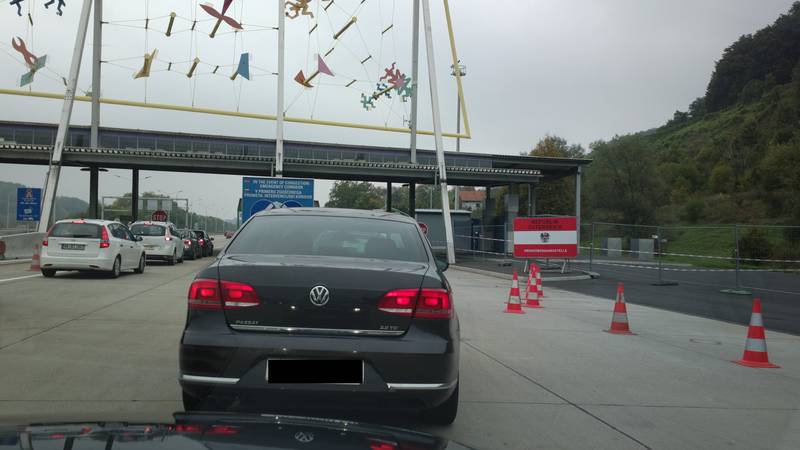
Just in the last four months 115 000 refugees have arrived in Sweden. “And if I just count the unaccompanied children, minors, there came 26,000 and that is 1,000 school classes arriving in Sweden in 4 months”, said Minister Johansson and added: “We are a country that can do a lot and has done a lot, but we cannot do everything. We have to share the responsibility with all member states in the EU and, therefore, we must also have a relocation system put in place, for instance, what the EC has now put forward”.
Ole Schröder, Parliamentary Secretary of State at the German Federal Ministry of the Interior also called things by their real names – at the moment there is a search for a European solution, for if one is not found member states institute their own measures. The main problem, in his opinion, is that nothing works – neither border control at the Turkey-Greece border, nor the Eurodac system for collecting fingerprints and other registration data from refugees, the Dublin system, or the relocation mechanism. In addition to the refusal of the three member states to be the sole carriers of European solidarity in the EU Commissioner Avramopoulos stated that those states were “real examples of European solidarity, hospitality and free movement”. Dimitris Avramopoulos said the only way forward was a European decision of all the 28 EU members.
It is important to note that solidarity began evaporating years ago, when Italy insisted on changing the Dublin rules, which it thought unfair when large flows of refugees are present. It was exactly the inflow of refugees from Italy into the core of the EU that was the reason for the first closing of borders in the Union. It was as late as last year that some members admitted this was unfair. Most prominent of them is Germany, whose chancellor Angela Merkel admitted during the December summit that the Dublin system was no longer adequate to the situation.
The meeting with the three states happens less than a month after member states agreed to tackle the shortcomings at the Schengen outer borders and especially guaranteeing systematic checks with the relevant databases to prevent document fraud. They also agreed to solve the problems with the functioning of hotspots, to execute their obligations on taking fingerprints and registering them in EU systems, following the decisions for relocation and respectively return of those, who do not meet the criteria for granting international protection, to fight human trafficking. They promised to decide on the EC’s proposal for external border guard by June and gave preliminary approval for changes to the Dublin regulation. By all accounts the EC has no intention of applying the full extent of European law, for the issue has an entirely new dimension now.
If up until now the threat of disintegration of the EU and especially of Schengen was mostly just a possibility, the meeting of January 6th showed it is already fact, unless solidarity returns. It all began with the decision of Hungarian Prime Minister Viktor Orbán in the middle of last year to surround his country with a wire fence in order to redirect the refugee flows and avoid his share of responsibility for dealing with the refugee crisis. This unlocked an avalanche of followers. Slovenia began building a wire fence at its border with Croatia, Austria reinstated border controls on November 16th valid until February 15th at its border with Slovenia, Germany shut down all its borders, especially the one with Austria also by February, and France declared a state of emergency from November 13th until February 26th because of the terrorist attacks in Paris. Bulgaria has long ago built a fence at its border with Turkey, and when the Western Balkans route became the main one it tightened controls at its borders with Macedonia and Serbia.
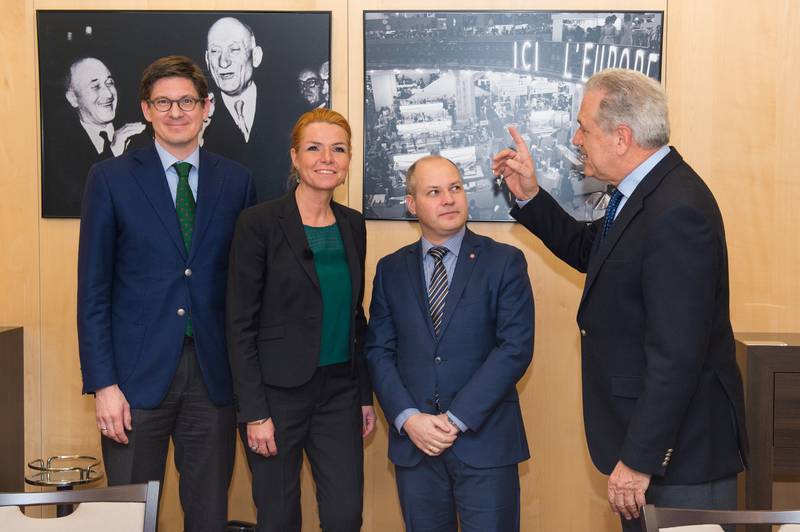
The Visegrad Four has turned into the biggest adversary of the refugee relocation mechanism, but many other states are not following on the commitments they made last autumn. Every EU meeting since September, including European Councils, turned into a constant reminding of these commitments and sending out appeals to follow them. The weekly EC reports, however, are showing that implementation is very low. The main spokesperson of the EC Margaritis Schinas stated, answering a multitude of criticisms, that this does not mean the EC was wrong. Some member states are of the opinion that the Commission’s proposals are inadequate. The alternatives proposed are also not greeted with understanding.
The refugee crisis revealed a clash of values in the EU. Until member states find a way to each other again the situation will only get worse. The measures announced by Denmark, Sweden, and Germany are just the beginning. If solidarity on this so important issue does not return, other measures will follow. There are unofficial talks about some of them, like the idea of establishing a mini-Schengen of like-minded countries, and official ones – like the idea of Austrian Chancellor Werner Faymann to stop cohesion funds for countries that refuse solidarity. Lack of solidarity regarding refugees could have a quite deeper impact on the functioning of the EU. The discussion on several key dossiers on EU integration and especially the one within the euro area is scheduled for this year. Due to lack of unity or differing opinions it is quite possible that these dossiers are frozen, or worse tear away another integration orbit from the EU.
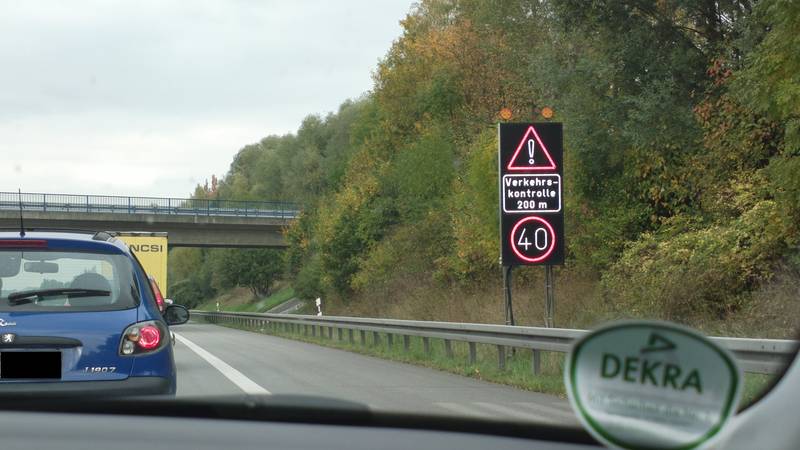
The worse aftermath of not acting on agreements, however, could again happen in the euro area, which is keeping afloat only thanks to low oil prices and the loosened monetary policy of the European Central Bank. The major task of the EU in 2016 is to find a way to itself again. If it fails, it will split into value spheres, which may seem like a solution, but it will only be temporary.
Translated by Stanimir Stoev.
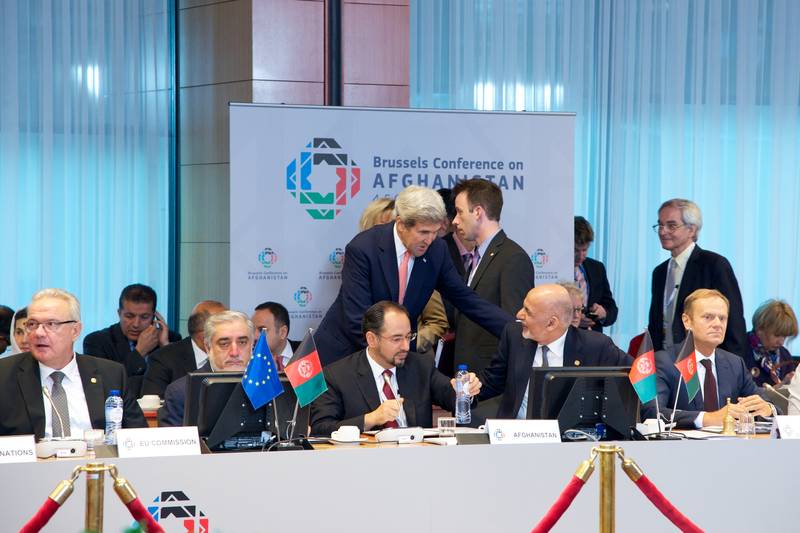 | © Council of the EU
| © Council of the EU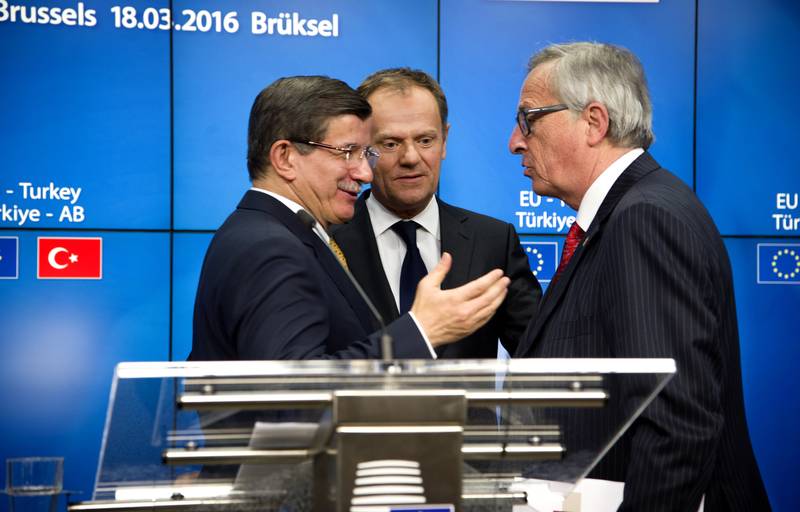 Davutoglu, Tusk, Juncker | © Council of the EU
Davutoglu, Tusk, Juncker | © Council of the EU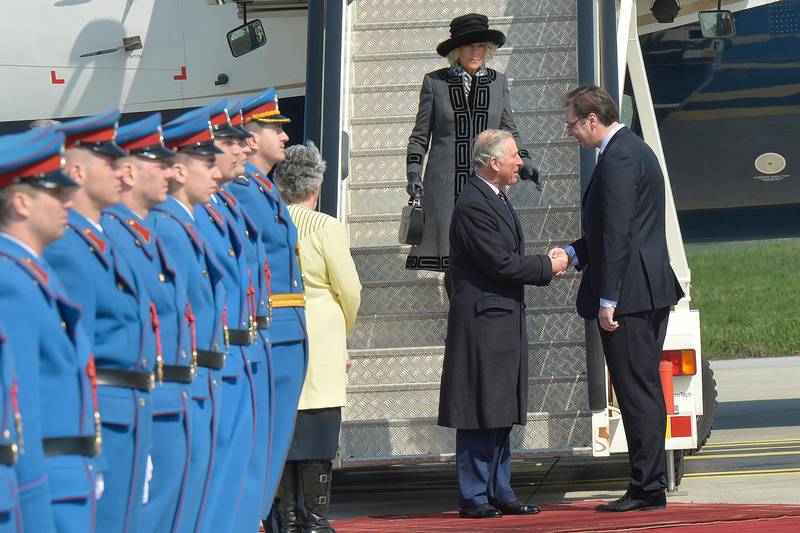 | © Vlada RS
| © Vlada RS